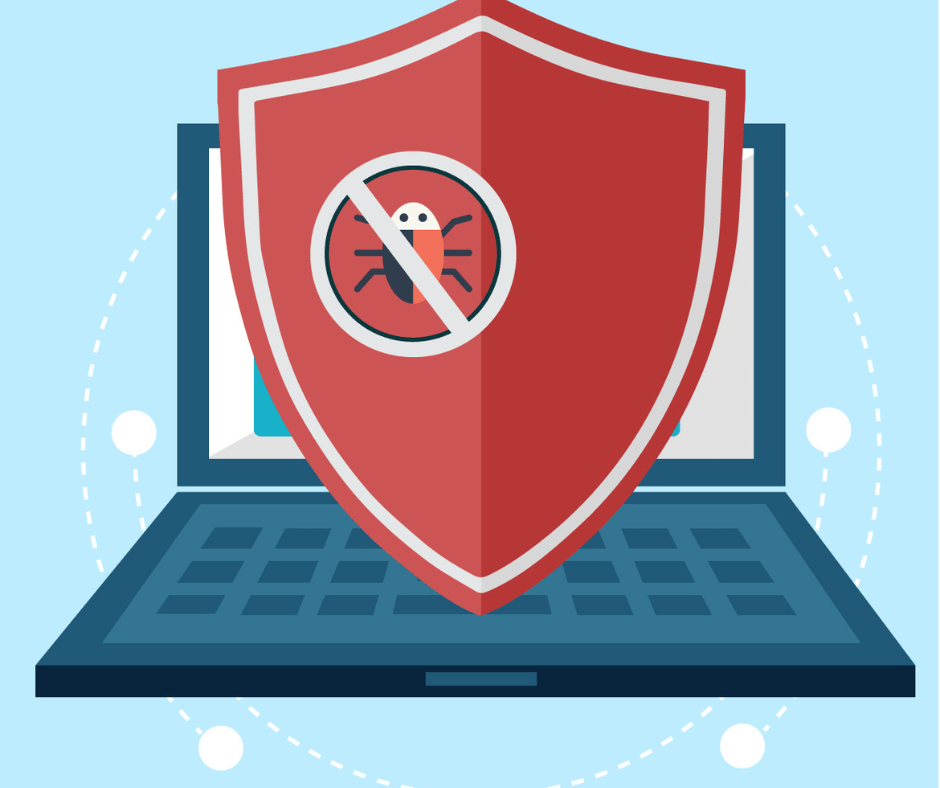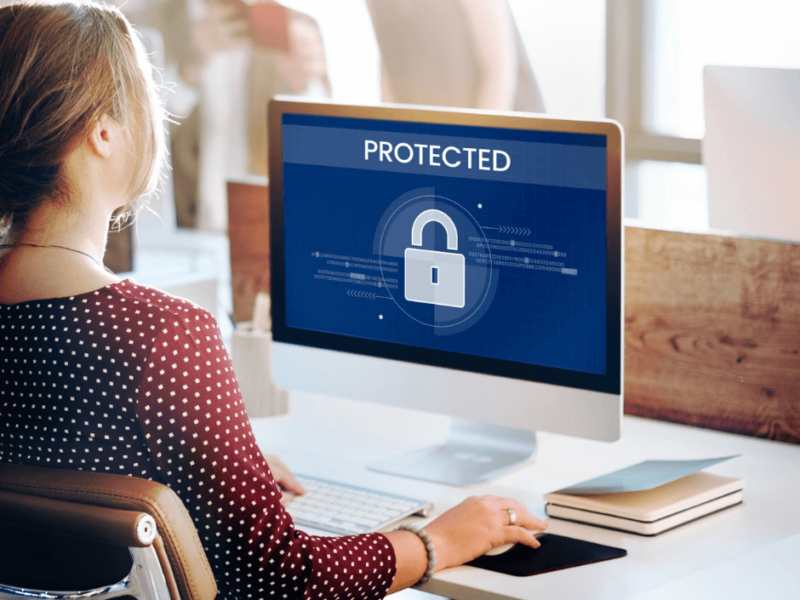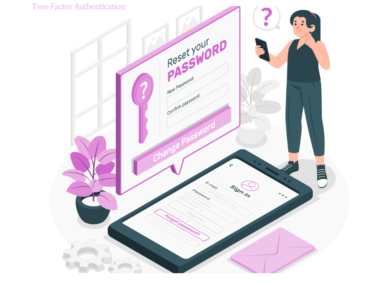How to Protect Your Online Privacy in the Digital Age. It’s crucial to protect your online privacy in today’s digital age. It has become more critical than ever.
The internet collects and shares a lot of personal data. It’s vital to keep your information private. We’ll explore simple ways to protect your online privacy. These ways are effective.
To protect your online privacy, use strong, unique passwords for all accounts. Avoid common passwords like “password123” or “123456.” Use a mix of letters, numbers, and symbols. Never reuse passwords across accounts.
This can make it easier for hackers to access your data. Another key step in protecting your online privacy is to be mindful of what you share. Be cautious about your social media posts.
Also, beware of phishing scams and other online threats. By taking these simple steps, you can help keep your personal information safe in the digital age.
Understanding the Digital Age
In the digital age, we are more connected than ever before. We can access information with ease, communicate globally, and conduct business. But this increased connectivity comes at a cost: our privacy. With so much personal data online, we must know the risks and protect ourselves.
What is the Digital Age?
The digital age is our current era. Technology is everywhere. It has changed how we live, work, and communicate. Digital technologies have gained widespread usage. These technologies include smartphones, computers, and the internet. We generate vast amounts of data every day. It’s from our online activity, the devices we use, and the services we sign up for.
The Risks to Our Privacy
With so much of our personal data online, there are many risks to our privacy. Hackers can steal our data. Companies can track our online activity. Governments can check our communications. If someone falls into the wrong hands, they can use it for identity theft, fraud, or blackmail.
Protecting Your Online Privacy
To protect your online privacy, there are several steps you can take. These include:
- Use strong, unique passwords for all your accounts. Enable two-factor authentication where possible. Be cautious about what you share online. Use a VPN to encrypt your internet traffic. Install security software on your devices. Update your software and devices at regular intervals.
By taking these steps, you can help protect your data and keep your online activity private. In the digital age, our privacy is vital. It’s our job to protect it.
Importance of Online Privacy
In today’s digital age, protecting our online privacy is more important than ever. Companies and organizations are collecting our personal information without our permission. They track and share it without our knowledge. This can cause identity theft, fraud, and blackmail. Data breaches are a major threat to our online privacy.

Companies must keep our personal data safe when they collect it. Many fail, leaving it vulnerable to hackers and cybercriminals.
A blog post by BroadbandSearch says data breaches raise privacy concerns. These breaches have serious consequences for people and businesses today. Another threat to our online privacy is the use of cookies and tracking technologies.
These tools let companies track our online activity and collect data on our browsing. The data can then create targeted ad campaigns. Some argue that targeted ads are useful. But they can be invasive and creepy. Also, these tools can collect sensitive info, like our location. It can be used for bad purposes.
Protecting our online privacy is vital for our security and freedom. We have the right to control our personal information and how it’s used. Taking steps to protect our online privacy is important. It keeps our personal info secure and protects us from cyber threats.
Threats to Your Online Privacy
As we increasingly live our lives online, our personal information is at risk. Here are some of the most common threats to your online privacy:
Data Breaches
Data breaches are a major privacy worry today. They have serious consequences for people and businesses. One notable incident, the Equifax breach of 2017, stands as a stark example.A data breach can expose your personal information to cybercriminals.
This includes your name, address, and Social Security number. This can lead to identity theft, financial loss, and other serious consequences.
Phishing Scams
Phishing scams are a type of online fraud that involves tricking people into giving away their personal information.Cybercriminals send deceptive emails or messages. These appear to be from a legitimate source, like a bank.

Practical Steps to Protect Your Online Privacy
They ask for sensitive information, like passwords or credit card numbers.Scams are hard to spot. Be cautious and verify personal information requests.
Malware
Malware is a type of software that is designed to harm your computer or steal your personal information. It can be spread through infected email attachments, malicious websites, or other means.Malware, once installed, can track your online activity and steal passwords. It can also take control of your computer.
Cybercriminals use social engineering to manipulate people into revealing personal information. This can include pretending to be a trusted friend or family member or posing as a company representative.Detecting social engineering attacks can be challenging.
It is crucial to exercise caution while sharing personal information online.To protect your online privacy, be aware of common threats. Take steps to safeguard yourself and personal information.In the next section, we will discuss some best practices for protecting your online privacy.

Protecting your online privacy is essential in the digital age. There are several practical steps we can take to safeguard our personal information from cybercriminals and other malicious entities.
Using Secure and Encrypted Connections
One of the most effective ways to protect your online privacy is to use secure and encrypted connections. When browsing the internet, we should always look for the padlock icon in the address bar, which indicates that the website is using a secure connection.
Additionally, we should use virtual private networks (VPNs) to encrypt our internet traffic and protect our online activities from prying eyes.
Managing Your Digital Footprint
Our digital footprint is the trail of data that we leave behind when using the internet. To protect our online privacy, we should be mindful of the information we share online.
We should avoid posting sensitive information such as our home address, phone number, and social security number.
We should also regularly review our social media privacy settings and limit the amount of personal information we share with others.
Securing Personal Devices
Our personal devices such as smartphones, tablets, and laptops are vulnerable to cyberattacks. To protect our online privacy, we should always keep our devices up-to-date with the latest security patches and software updates.
We should also use strong passwords and enable two-factor authentication to prevent unauthorized access to our devices.
Understanding Privacy Policies
When using online services such as social media platforms and e-commerce websites, we should read and understand their privacy policies.
Privacy policies outline how our personal information is collected, used, and shared by these services.
By understanding these policies, we can make informed decisions about the information we share online and how it is used by these services.
By following these practical steps, we can protect our online privacy and safeguard our personal information from cybercriminals and other malicious entities.
Laws and Regulations on Online Privacy
As technology advances, online privacy is becoming a growing concern for many individuals. Fortunately, there are laws and regulations in place that aim to protect our online privacy.
In this section, we will discuss two such regulations: the General Data Protection Regulation (GDPR) and the California Consumer Privacy Act (CCPA).
General Data Protection Regulation (GDPR)
The GDPR is a regulation that was enacted by the European Union (EU) in 2018. It aims to protect the privacy of EU citizens by regulating the collection, processing, and storage of their personal data.
The regulation applies to all companies that process the personal data of EU citizens, regardless of where the company is based.
Under the GDPR, individuals have the right to access, rectify, and erase their personal data. They also have the right to know how their data is being used and to object to its processing.
Companies must obtain explicit consent from individuals before collecting and processing their personal data.
They must also implement appropriate security measures to protect the data from unauthorized access or theft.
California Consumer Privacy Act (CCPA)
The CCPA is a California state law that was enacted in 2020. It aims to protect the privacy of California residents by regulating the collection, processing, and sale of their personal data.
The law applies to companies that do business in California and meet certain criteria, such as having annual gross revenues of over $25 million or processing the personal data of over 50,000 California residents.
Under the CCPA, individuals have the right to know what personal data is being collected about them, the right to request that their data be deleted, and the right to opt-out of the sale of their personal data.
Companies must provide individuals with a clear and conspicuous privacy notice that explains their data collection practices.
They must also implement reasonable security measures to protect the data from unauthorized access or theft.
In conclusion, the GDPR and CCPA are two important regulations that protect our online privacy. By understanding these regulations and our rights under them, we can take steps to protect our personal data and maintain our privacy in the digital age.

More Tips: How to Protect Your Personal Information and Online Privacy
In today’s digital world, safeguarding your personal information and maintaining online privacy are more critical than ever. Social networking sites can connect people.
But, they can also risk identity theft and data breaches. Understanding how to protect privacy online is essential for anyone navigating the internet.
This guide will explain how you can protect yourself on social networking sites, discuss tools and strategies to enhance online privacy, and highlight services for identity theft protection.
Why Online Privacy Matters
Your personal information, such as your name, address, and financial data, is valuable to cybercriminals. They use this data for identity theft, fraud, and phishing scams. Protecting your data is essential to prevent misuse. It applies to both sharing updates on social media and entering your credit card info on a website.
For organizations, ensuring online privacy is equally important. Careless use of social media can expose sensitive business info. This can damage our reputation and lead to legal issues. Knowing how you can protect your organization on social networking sites is vital for operational security.
How Can You Protect Yourself on Social Networking Sites?
- Review Privacy Settings: Adjust your account settings to limit who can see your posts and personal details. Most platforms allow you to restrict access to friends or specific groups.
- Be Cautious About Sharing: Avoid posting sensitive information, like your home address or travel plans, which could make you vulnerable to theft or scams.
- Use Strong Passwords: Create unique, complex passwords for each social networking site. Use password managers to store and organize them securely.
- Enable Two-Factor Authentication (2FA): Adding an extra layer of security ensures that even if your password is compromised, your account remains protected.
- Be Wary of Links: Cybercriminals often use malicious links to trick users into providing personal data. Always verify the source before clicking.
Tools to Protect Privacy Online
- Privacy Apps: Tools like Signal, DuckDuckGo, and ProtonMail encrypt your communications, ensuring your data stays secure.
- VPNs (Virtual Private Networks): A VPN masks your IP address and encrypts your internet connection, offering an extra layer of security.
- Antivirus Software: Robust antivirus programs detect and block malware that can compromise your personal information.
- Browser Extensions: Extensions like uBlock Origin or Privacy Badger help block tracking scripts and ads that monitor your online activities.
Explore top-rated tools for privacy here: Affordable Privacy Solutions on AppSumo.
Identity Theft Protection Services
Investing in identity theft protection services can safeguard you against fraudulent activities. These services check your data for suspicious activity, alerting you to potential threats. Some even offer insurance or financial recovery help if your identity is compromised.
Popular services include:
- LifeLock: Provides real-time alerts and recovery support.
- IdentityForce: Offers advanced monitoring and dark web scanning.
Protecting Your Organization on Social Networking Sites
For businesses, maintaining privacy online involves a combination of employee education and robust security measures. Here are steps to take:
- Train Employees: Educate staff on how to recognize phishing scams and avoid oversharing company details on social platforms.
- Monitor Accounts: Regularly review business social media accounts for suspicious activity or unauthorized access.
- Implement Policies: Develop guidelines for employees about what can and cannot be shared online.
- Use Secure Communication Tools: Switch to encrypted apps for sensitive business conversations.
Conclusion: Tools for Privacy
Maintaining online privacy takes constant effort. It needs vigilance, the right tools, and good practices. Protecting your data on social networking sites is critical. It helps avoid threats like identity theft and cyberattacks, for individuals and organizations.
Ready to secure your online presence? Check out these resources:
- Privacy Apps and Security Tools on AppSumo
- Affordable Hosting Solutions for Secure Websites
- Domain Protection Services from Namecheap
Reference Sources
- Online Privacy Best Practices – Privacy International
- Identity Theft Prevention Tips – Federal Trade Commission (FTC)
- Tools for Privacy and Security – Wired
Frequently Asked Questions
Why is online privacy important?
Online privacy is important because it protects our personal information from being misused or exploited by others. Our personal information, such as our name, address, phone number, and email address, is valuable and can be used to commit identity theft, fraud, or other malicious activities.
Protecting our online privacy also helps prevent unwanted tracking, targeted advertising, and other invasive practices that can compromise our digital wellbeing.
What are some methods to protect your data online?
There are several methods to protect your data online, such as using strong passwords, enabling two-factor authentication, using a virtual private network (VPN), avoiding public Wi-Fi, and keeping your software up-to-date.
You can also limit the amount of personal information you share online, use privacy-focused search engines and browsers, and be cautious when downloading or installing software.
What are some ways to safeguard your account and data?
To safeguard your account and data, you can enable privacy settings on your social media and other online accounts, use encrypted messaging apps, backup your data regularly, and delete old accounts that you no longer use.
You can also use anti-malware software, avoid clicking on suspicious links or attachments, and be mindful of phishing scams.
How can we protect our privacy in the digital age?
To protect our privacy in the digital age, we can be more aware of the information we share online, limit the amount of personal information we disclose, and use privacy-enhancing tools and services.
We can also advocate for stronger privacy laws and regulations, support organizations that promote digital rights and freedoms, and educate ourselves and others about digital privacy issues.
How can we protect our digital content?
To protect our digital content, we can use encryption, watermarking, and other tools to prevent unauthorized access, copying, or distribution.
We can also be mindful of the terms of service and copyright laws that govern our use of digital content and seek permission or licensing when necessary.
Additionally, we can backup our digital content regularly and store it securely in multiple locations.
How can we protect ourselves from digital privacy threats?
To protect ourselves from digital privacy threats, we can stay informed about the latest threats and vulnerabilities and take proactive measures to mitigate them.
We can also use security tools and services such as firewalls, anti-virus software, and intrusion detection systems, and be cautious when sharing personal information or engaging in online activities.
Additionally, we can support efforts to promote digital literacy and cybersecurity awareness and work together to create a safer and more secure digital environment for everyone.
Conclusion
Protecting our online privacy in the digital age is becoming increasingly important as more of our personal information is being shared and stored online.
By taking simple steps such as using strong passwords, enabling two-factor authentication, and being mindful of what we share online, we can help protect our personal information from being accessed by unauthorized individuals.
In addition, it is important to stay up-to-date with the latest privacy policies and regulations and to be aware of the risks associated with using certain apps and services.
We should also take advantage of privacy tools and features offered by companies, such as opting out of targeted advertising and using privacy-focused search engines.
Ultimately, protecting our online privacy requires a combination of awareness, education, and action.
By taking the necessary precautions and being mindful of our online behavior, we can help ensure that our personal information remains private and secure in the digital age.







